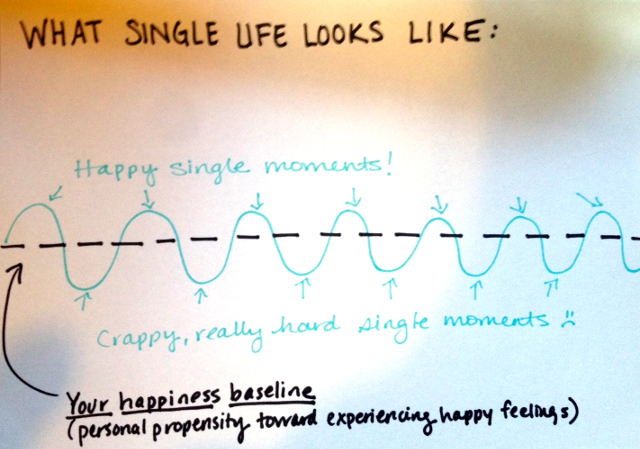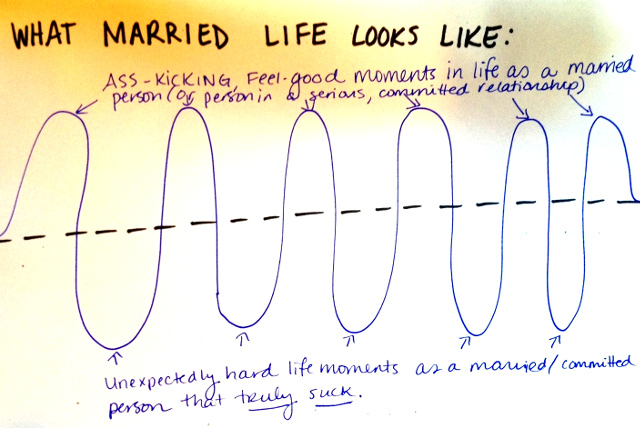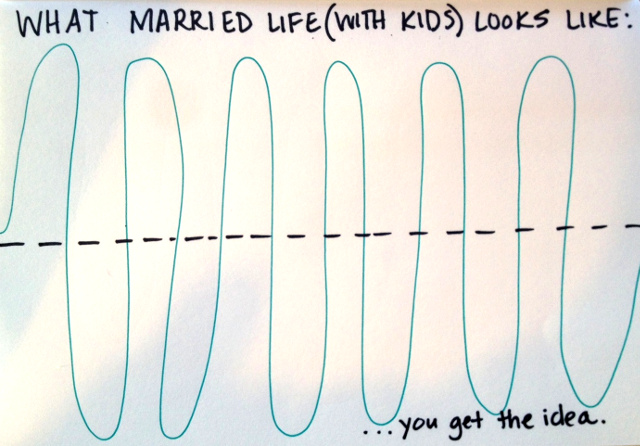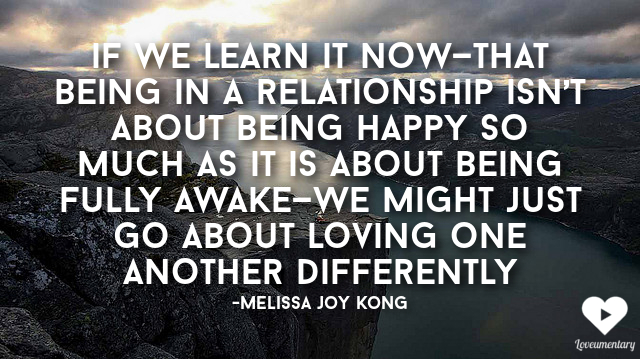We crave love. We really crave it. I cannot get through a conversation with my friends without, at some point, turning to the topic of romance. Some are eager to find love. Some are dealing with heartbreak. Some are in relationships, trying to make sense of what love and commitment are really about. Others are feigning apathy; often asserting they are too busy focusing on their careers to think seriously about getting into a relationship. But, almost always, the topic of love is an inescapable part of the conversation.
We're thinking about it, dreaming of it, eager for it, scared of it, wondering if and where we’ll ever find it, and all too often suppressing our true questions and feelings about it.
Why?
Why do we care so much? Why do we crave romantic partnership? Why are so many of us yearning for a significant other (even if we don’t want to admit it)?
After spending four months on the road with Nate talking to couples and relationship experts all over the U.S., here’s one of the biggest lessons I learned:
We all believe, on some level, that being in love will make us happier.
You know what else I learned?
This belief is one of our most prevalent cultural delusions.
Yes—for many, finding a significant other leads to generally increased feelings of happiness, stability, and fulfillment. But, all of the couples we talked to said every moment of partnership and marriage isn’t perfect. Not every moment in love fills us with feelings of “happiness.” Some days, weeks, months—even years—in a relationship are filled with stress, hardship, difficult conversations, and challenging life decisions.
I don’t say this to create disenchantment about the institution of marriage or, more broadly, romantic relationships. I bring it up because hearing so many honest stories about the challenges of commitment and marriage taught me a much bigger lesson about life and loving well.
Here it is, in chart form (because who doesn’t love charts?):
SINGLE LIFE:

MARRIED LIFE:

MARRIED LIFE (WITH KIDS!):

I use the word “marriage” above, but the concept applies to all committed relationships. The more committed, the bigger the range of peaks and troughs—highs and lows.
Being in a committed relationship isn’t going to make you happy. Your happiness is and will always be determined by the meaning you assign to the circumstances and outcomes of your life. Trust me, I learned this the hard way.
Being in love doesn’t mean we’ll be happy all the time. But it does mean the range of experiences and emotions we feel are likely to expand in a significant way. This means the good stuff AND the bad stuff.
You know why? Because loving people requires that we let them in close. And if we let people in close, it means they can hurt us the most—even if they don’t mean to, even if they don’t want to. So when we sign up for love, we’re also signing up for pain. And joy. And everything in between.
There are ups and downs in life when you’re single, and the only difference when you start committing to love is that the ups and downs get amplified. There’s more to gain and there’s more to lose.
When you get married, for instance, that usually means you have greater potential for financial freedom—but you also have more bills to pay. You have someone to come home to every night to talk to about your day—but you also have to include that person in the discussion, planning, and (sometimes) negotiation over how you spend your time. You experience the joy of loving someone deeply—but you also experience the pain of fighting with—or potentially losing—that very same person.
The list goes on and on.
In short, love does not make us happier. It makes us more alive.
The more we love, the more we live. The greater the range of experiences and emotions, the better able we are to empathize, relate to, and love others—not just with who we choose to commit to, but with all people. As a result, loving relationships have the ability to soften our hearts, smooth out our rough edges, and transform us into our most loving, forgiving, genuine selves.
…if we let them.
And that’s why I bring all of this up in the first place. Because if we learn it now—that being in a relationship isn’t about being happy so much as it is about being fully awake—we might just go about loving one another differently. We might just love one another for the opportunity to grow alongside a best friend—through the good, the bad, the ugly, and the amazing. We might look at the hard stuff differently. We might not run away as easily, get divorced as quickly, or jump in as hastily (before we’re really ready for the amplification of both the good and bad stuff that inevitably happens in life).
And that’s what I’m grateful for.
I’m grateful for the ups and downs. I’m grateful to be waking up. I’m grateful for the happiness and hardship I experienced when I was single. I’m grateful for the even bigger challenges and joys I’m experiencing now in a loving relationship. And I’m grateful in advance for the even wider range of ups and downs I’ll experience in the future as I gain the wisdom and courage to love more people, more fully (maybe even my own kids someday—God help me in their teenage years).
I recently watched and was moved by this interview with Tich Nhat Hanh. At one point during the interview, he says, in reply to Oprah’s question about human suffering, “You cannot grow a lotus on marble. You have to grow it on the mud. Suffering is the kind of mud we must use to grow the flower of understanding and love."
In other words: we cannot have the ups without the downs. The joy doesn’t mean much without the context of hardship and pain.
Our best relationships (starting with the ones we have with ourselves) form out of a deep understanding of and appreciation for life’s inevitable ups and downs. The hard stuff refines us and the happy stuff polishes us.
Ups. Downs. Highs. Lows. Peaks. Troughs. Joy. Pain. Love. Loss. Challenge. Growth. Happiness.
These are the mix of experiences and emotions that make us fully alive—and they happen regardless of our marital status. All of them are important. All of them are the point. All of them blend together all of the time, adding depth and meaning to our beautiful, messy, hard, painful, crazy, wonderful lives.
I’m grateful to live a brave life, full of ups and downs.
Each turn reminds me I am fully alive.
[jbox title="About the author:" border="5" radius="15"] Melissa Joy Kong fell in love with media when she was 11-years-old, and has spent the last 15 years passionately uncovering why. She loves telling great stories, and doing work that empowers people to live stories worth telling. She currently leads content strategy at Eventbrite, is the cohost of The Loveumentary podcast, blogs here, and is working on a book about 100 incredible stories of true love in America.
Want to get the 30 Day Gratitude Challenge sent to your email inbox every day? Fill out this little form here:
[gravityform id="2" name="Subscribe" title="false" description="false"]
[/jbox]


